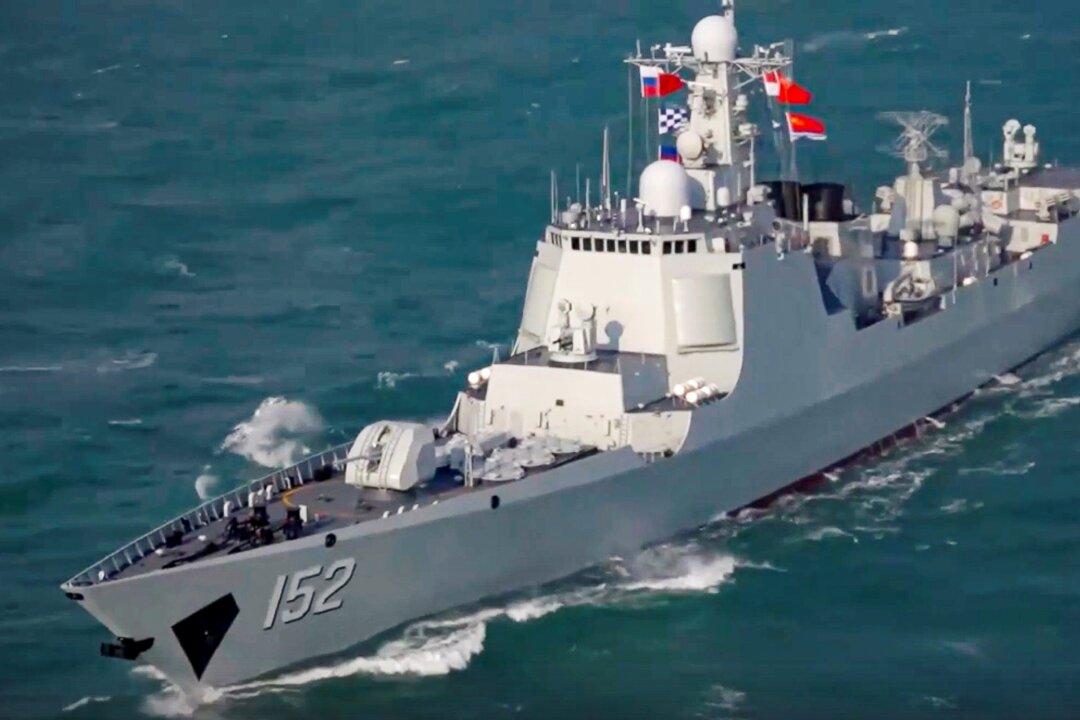Chinese and Russian naval and air forces will conduct another round of joint exercises this month, according to China’s defense ministry, strengthening the partnership between the two neighbors that some analysts say is based on their shared adversary, the United States.
The joint operation will take place in the air and water surrounding the Sea of Japan and the Sea of Okhotsk, the ministry said in an online statement on Sept. 9, without providing further details.




